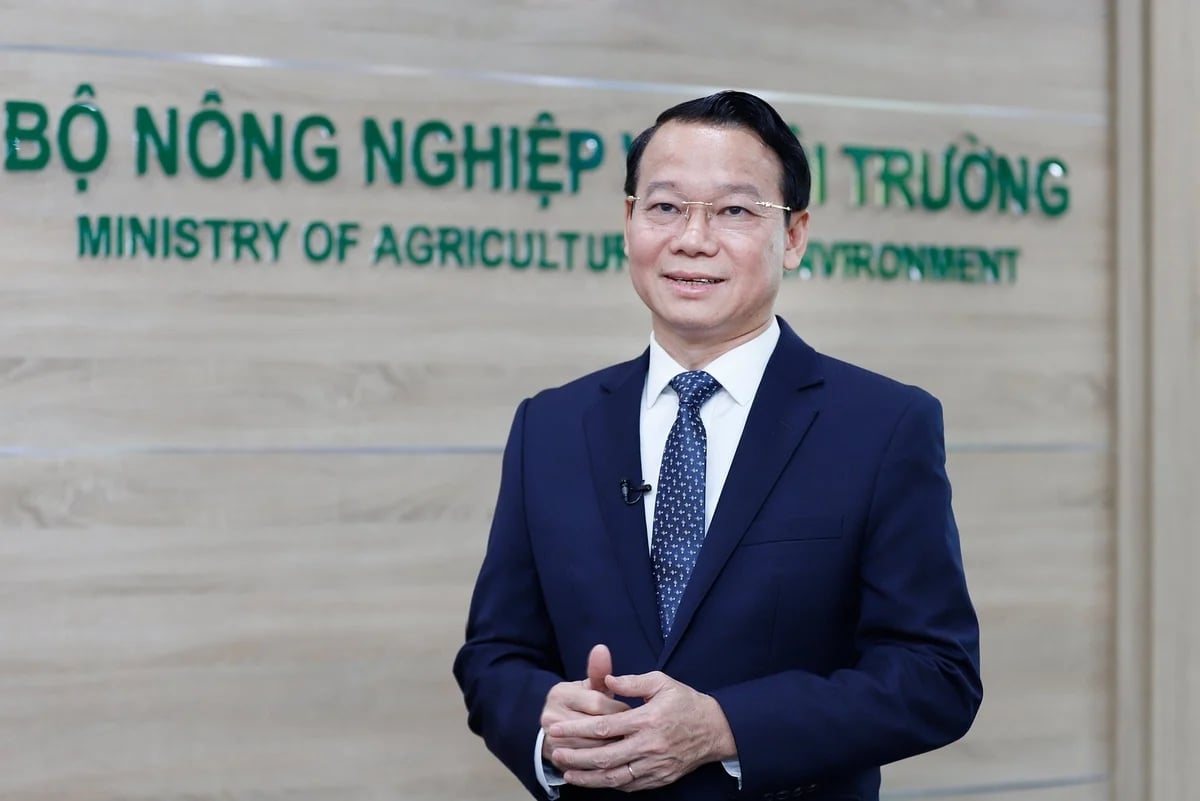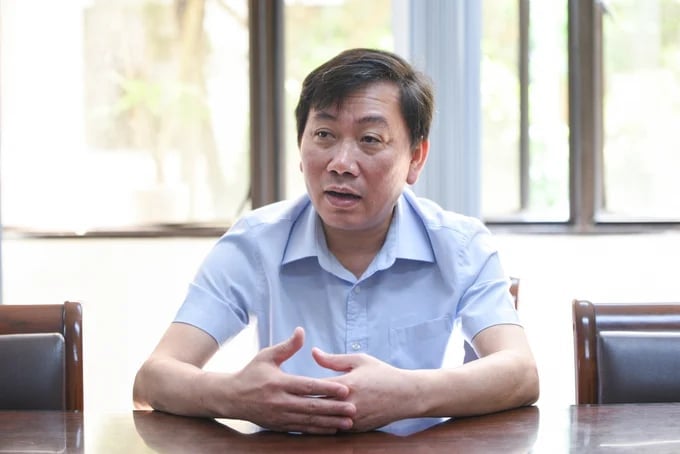December 9, 2025 | 19:22 GMT +7
December 9, 2025 | 19:22 GMT +7
Hotline: 0913.378.918
December 9, 2025 | 19:22 GMT +7
Hotline: 0913.378.918
Starting June 1, Vietnam’s Minister of Agriculture and Environment, Do Duc Duy, leads a delegation of nearly 50 organizations to explore trade opportunities and promote the import of agrifood and timber products from the United States.
The delegation will take part in business dialogues in Iowa, Ohio, and Washington, D.C.
This visit demonstrates Vietnam’s strong commitment to building trust and strengthening its strategic partnership with the U.S. in the shared agricultural supply chain. It also aims to deepen the Comprehensive Strategic Partnership as both countries mark 30 years of diplomatic relations.

Minister Do Duc Duy trusts that agricultural cooperation between our Vietnam and the United States has grown closer. Photo: Khuong Trung.
According to Minister Do Duc Duy, Vietnam and the U.S. both have strong agricultural sectors with complementary strengths rather than direct competition.“With active support from both governments, agricultural cooperation between our two countries has grown closer. We now share supply chains, enhance competitiveness, and bring benefits to producers and consumers on both sides,” the Minister emphasized.
Vietnamese agribusinesses have worked closely with the Government to boost imports of U.S. agrifood and timber products. These efforts help balance trade, strengthen the agricultural supply chain, and contribute to global food security.
Today, American consumers are increasingly choosing Vietnamese agrifood products, particularly spices, fruits, seafood, and furniture. At the same time, Vietnamese producers are increasingly relying on U.S. imports, including cornmeal, soybeans, meat, dairy products, lumber, livestock equipment, and seedlings.
Vietnamese farmers are gaining new skills and knowledge to adopt advanced American technologies that enhance productivity, improve product quality, and protect the environment. High-quality materials and cutting-edge technologies from the U.S. are helping Vietnam build more competitive and sustainable supply chains.
Vietnamese agribusinesses are actively seeking U.S. partners to import key commodities, including animal feed, fertilizers, biopesticides, meat products, frozen seafood, and raw timber.
Dr. Nguyen Do Anh Tuan, General Director of the International Cooperation Department under Vietnam’s Ministry of Agriculture and Environment, expressed concern about the Trump administration’s recent announcement of a 10% tariff on imports starting April 2, 2025, along with a potential 46% reciprocal tariff on Vietnamese exports beginning July 9, 2025. These moves have raised alarm not only among Vietnamese exporters but also within the American business community.

Dr. Nguyen Do Anh Tuan, General Director of the International Cooperation Department, expresses concern about the United States' recent tariff policies. Photo: Tung Dinh.
“Higher reciprocal tariffs will shrink profit margins and weaken business competitiveness on both sides,” Dr. Tuan said. “More importantly, they risk disrupting the integrated supply chain that both governments and private sectors have worked hard to build in recent years.”
He added that agrifood is an essential commodity, and increasing its cost would place a significant burden on average-income American households.
Despite these challenges, Vietnam’s agriculture sector remains committed to deepening its partnerships with U.S. stakeholders, from federal and state governments to associations and enterprises. At the government level, Vietnam’s Ministry of Agriculture and Environment has signed multiple cooperation agreements with U.S. federal agencies and state authorities.
Vietnamese agribusinesses have signed 18 Memorandums of Understanding since 2020 to purchase agrifood from the U.S., totaling 6 billion USD, with half already implemented. According to Dr. Tuan, each association-level exchange is an opportunity to clarify technical requirements, update changes in standards, and propose solutions to harmonize regulations between the two countries.
Recently, the Ministry of Agriculture and Environment has created favorable conditions for U.S. agricultural exporters to enter the Vietnamese market. Vietnam has completed the registration procedures for 509 meat and meat exporters, 232 seafood exporters from the U.S., with no backlog remaining to be processed.
Vietnam is also among the first eight Asian countries to approve biotechnology-based plant seeds from the U.S. So far, it has approved all 61 biotechnology application dossiers submitted by U.S. companies. The two sides have also agreed on transparent and practical methods, procedures, and protocols for animal and plant quarantine and food safety.
In addition, the new Decree 73/2025/ND-CP, effective from March 31, 2025, cuts the import tariff to 0% for agrifood products that the U.S. has strong competitiveness. As a result, agricultural exports from both sides have grown steadily, by around 10% annually over the past decade.
Previously, in an interview with the Vietnam Agriculture and Nature Newspaper about the policy of balancing the bilateral agricultural trade balance in the face of the new policy of the Trump administration, the Foreign Agricultural Affairs Office of the US Embassy in Hanoi affirmed: “Ensuring reciprocal market access and reducing tariffs remain top priorities to sustain long-term trade growth.”

(VAN) Bach Ma National Park will continue to conserve biodiversity in ASEAN, aligned with sustainable agriculture and environmental development goals.

(VAN) Pu Mat National Park is a green gem of Nghe An province, and its value is further elevated after being officially recognized as an ASEAN Heritage Park.

(VAN) EU expects Viet Nam to seize the chance and comply with green standards to make strong breakthroughs in exporting high-quality agricultural products.

(VAN) These meaningful messages from international partners affirm VAN News' increasingly solid standing.

(VAN) Former Minister Pham Khoi Nguyen expressed his hopes for VAN News as it embarks on a new chapter marking 80th anniversary.
![Hue aims for Net Zero: [5] Building a green and sustainable city](https://t.ex-cdn.com/nongnghiepmoitruong.vn/608w/files/content/2025/12/03/bai-5-anh-6-105459_830-111605.jpg)
(VAN) Hue City continues its efforts to build and maintain a green, sustainable, and environmentally friendly city, joining the Government in pursuing the goal of Net Zero by 2050.

(VAN) After 10 years of operation, Aus4Skills has awarded more than 500 scholarships and enhanced the skills of over 40,000 students, contributing to the strengthening of the strong relationship between the two countries.